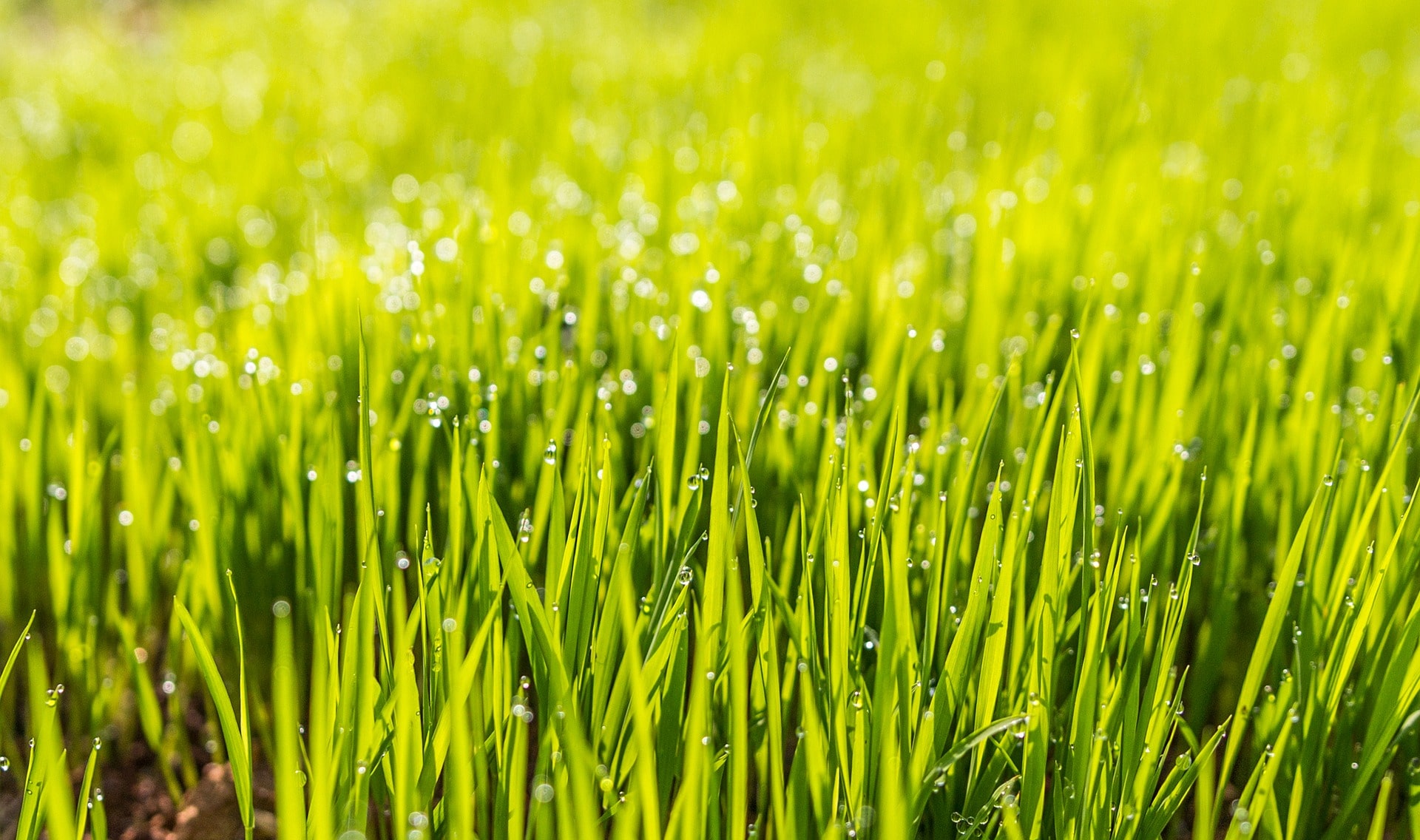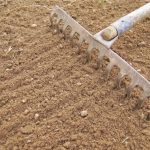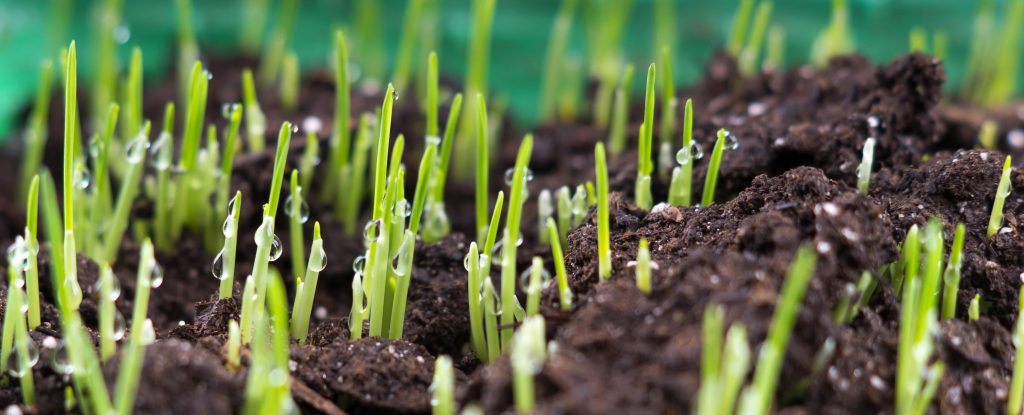If you’ve just planted new grass seeds in the autumn or winter, you might be wondering whether or not they are actually going to grow while the weather is cold.
Conversely, if you live in a warmer climate, you might be wondering why your grass doesn’t grow as fast in the middle of summer when the soil gets extremely hot.
Here’s what you need to know about how soil temperature affects grass growth.
What’s the best temperature for grass to grow?
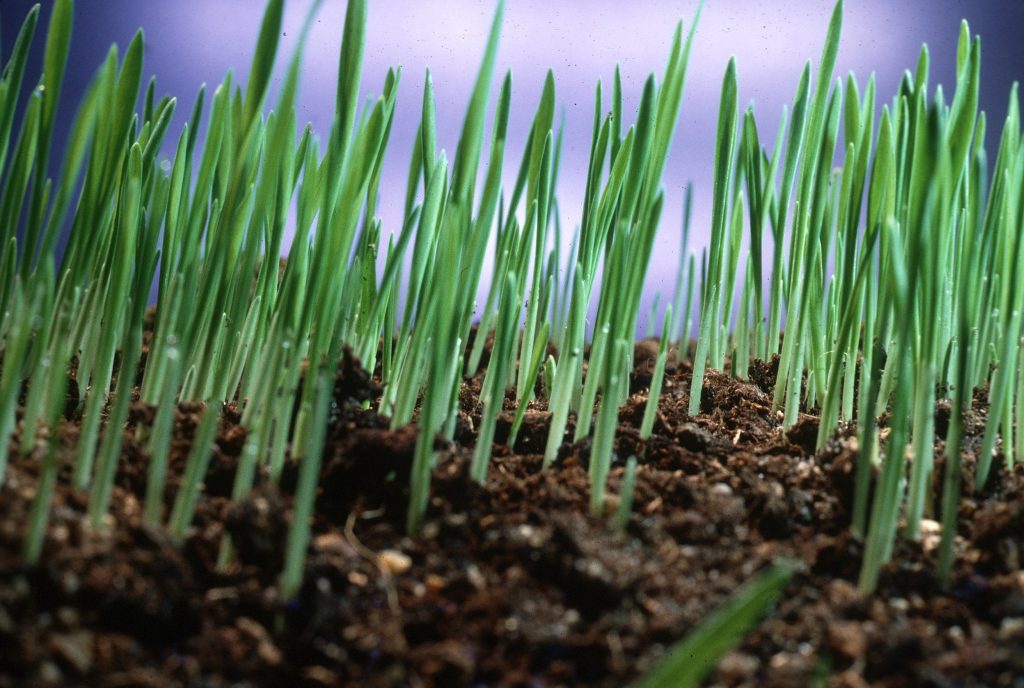
The right soil temperature for grass to grow is between 6 – 35 degrees Celsius. Grass will grow best when the temperature is between 18 – 24 °C.
Essentially, your grass will not grow if the ground temperature is less than 6 °C or greater than 35 °C.
In between this temperature range, grass will germinate, but it will grow fastest between 18 – 24 °C.
Note that some types of grasses can be a little different. For example, cool season grass, such as Meadow grasses or perennial ryegrass, can grow at temperatures as little as 4 °C. On the other hand, carpet grasses such as Axonopus will grow better in warmer climates.
What happens if the soil is too cold?
The colder the soil, the less energy is available for your grass seed to use for photosynthesis.
Also, if the ground is especially cold, this can result in the ground becoming partially frozen, preventing your grass from getting the moisture it needs to germinate and grow.
Even if there is dew on the lawn in the morning, if the grass seed below the surface cannot get this water, then this will inhibit their growth. And lower temperatures mean that there is a greater chance of snow than rain. When temperatures get extremely cold and you get snow and/or frost, your lawn can go dormant, resulting in very little growth.
What happens to grass if the soil is too warm?
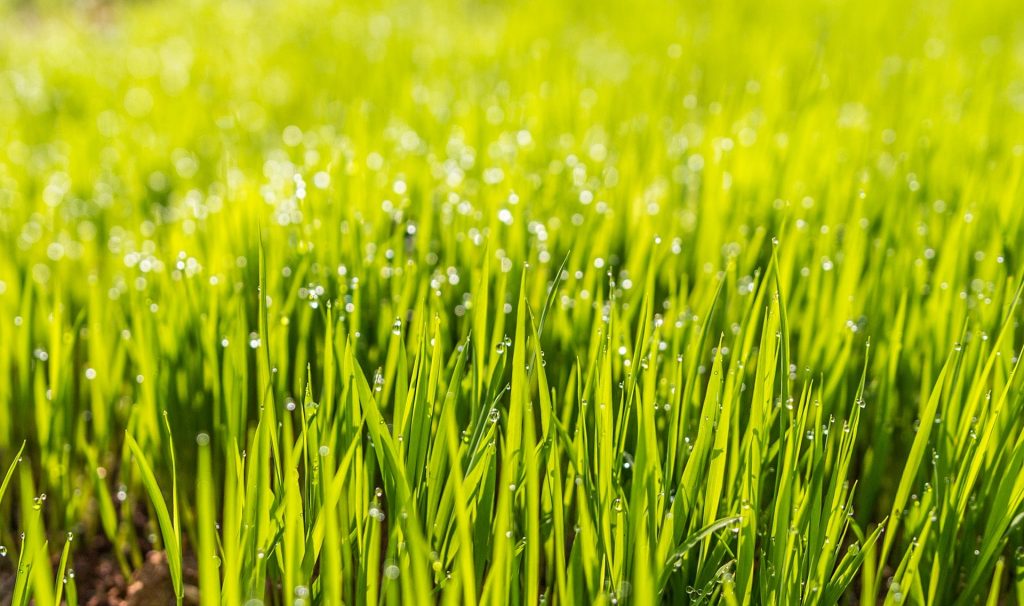
On the other end of the scale, your lawn can face heat stress if the weather is too warm.
The hotter the soil, the more likely it is for water in the soil to evaporate. This can starve the seeds of moisture they need to grow.
Heat can also cause other issues with grass growth. It can make the topsoil hard and dry, limiting the ability of grass seed roots to grow. The grass seeds themselves can also dry out if they get too hot, potentially killing them.
What’s the difference between soil and air temperature?
So far in this article, you might have noticed us refer exclusively to soil temperature rather than air temperature. This is because soil temperature is what matters for your grass. However, your soil temperature doesn’t always match your air temperature.
Over time, the ground absorbs heat or cold, and releases it slowly as weather conditions change.
For example, if you’ve had a week of warm, sunny weather, then the next day it becomes much colder, your soil temperature is likely to be higher than the air temperature until the soil releases its excess heat.
Therefore, don’t be worried if your grass doesn’t start growing again for a few days after the end of a cold snap.
To measure soil temperature, you can buy a device known as a soil thermometer, if you’re afraid that your ground temperature is affecting lawn growth.
How does soil temperature affect grass seed germination?
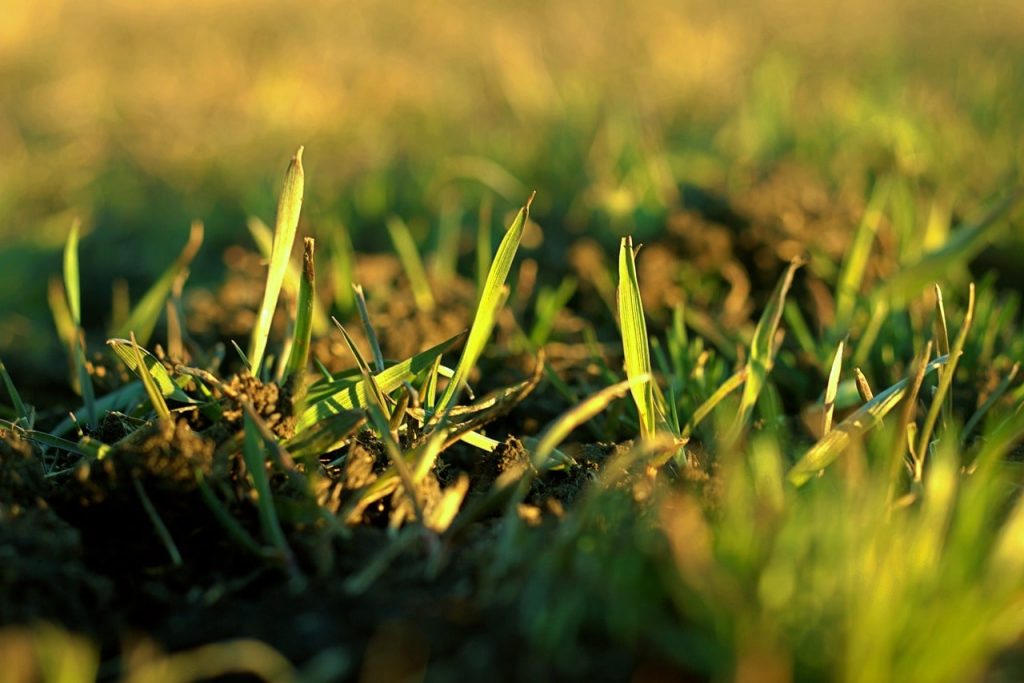
If you’re planting new grass seed, what matters most at first is root growth. If roots cannot sprout from your grass seed, or they can’t germinate, then your new grass won’t grow.
Therefore, it’s best to plant new grass seed when the temperature is just right. In the UK, it’s best to avoid planting grass seed in the middle of winter, otherwise they will probably fail to germinate.
Instead, sow your grass seed in the spring, summer, or early autumn, and water them according to how much rain they’re getting.
Depending on overall conditions, grass seed should germinate in around 2-4 days. But if the temperature is not right, it could take weeks, assuming the grass seed is able to germinate at all.
Can frequent soil temperature changes affect grass growth?
Most grasses are relatively tough. Frequent weather changes won’t affect their growth, especially given how soil retains its temperature over time.
In fact, grass seed likes having a bit of variety. They need sunlight and rain in just the right amount to grow, so having some weather variation can be useful in helping them achieve this.

I’m Josh, and I’m the head writer at Lawn Care Pro.
I love everything lawns, but I’m a bit of a lawn mower nerd. I spend a lot of my free time tinkering with mowers, and planning my mowing schedule for the next few weeks.
I’m also into cars, which comes in very helpful when servicing a mower engine!

